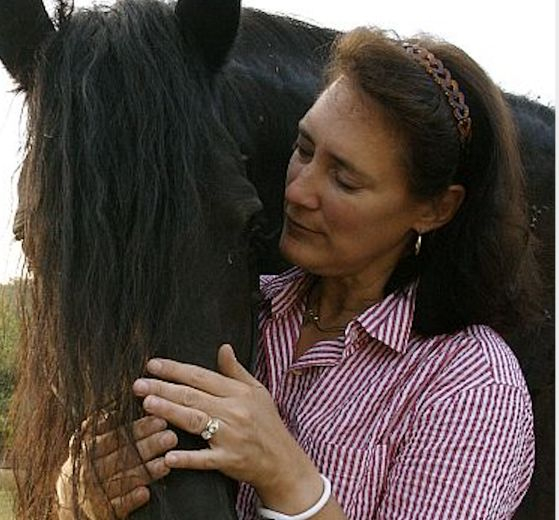 A narrow escape from a charging stallion would cement Margaretha’s love of horses, but it would take her deteriorating eyesight after 20 years as a medical doctor for Margaretha to combine that love with her therapeutic training—and begin hosting transformational retreats in the Gascony region of France.
A narrow escape from a charging stallion would cement Margaretha’s love of horses, but it would take her deteriorating eyesight after 20 years as a medical doctor for Margaretha to combine that love with her therapeutic training—and begin hosting transformational retreats in the Gascony region of France.
Tell us about your background.
I can remember the exact place and time I fell in love with a horse. I was 10 years old and lived with my family in a small village, not far from Versailles, about 30 minutes from the heart of Paris, in France. My brother and I walked to school every morning; there was a huge meadow that we were supposed to avoid at all cost, but being the sort of adventurous children we were, never did. Each time, we climbed through the fencing and cut across the field. It shortened our walk by at least 10 minutes, which we appreciated on freezing winter mornings.
![mail[2]](https://helenetstelian.com/wp-content/uploads/2016/05/mail2.jpg)
With my brother as children
I think I cried something like “Sauve qui peut!,” quite unnecessarily, as my brother was already running like hell towards the fence. With my own heart beating desperately in my ears, I followed suit, literally diving through the fence to the relative safety of a deep roadside ditch.
Scrambling out of the ditch, I turned to look around and what I saw took what little breath I had left away completely. There he stood, furiously pawing the ground, tossing his mane and swishing his tail. Such beauty! Such power! I immediately decided that I wanted a horse of my own, a horse just like him.
![CIMG1617small[2]](https://helenetstelian.com/wp-content/uploads/2016/05/CIMG1617small2.jpg)
The stallion in question
One day, after a full morning of gynecological surgery, it suddenly felt as if someone was repeatedly stabbing me in my left eye with a very sharp, red-hot knife. It was so painful that I fainted and was promptly admitted to the very same hospital where I had just that morning been operating on patients. Thus began a 20+ year struggle to preserve my sight, a battle that has resulted in complete loss of sight in my left eye and only 40% vision left in my right eye. Luckily, my sight deteriorated slowly, over many years, and even though I could no longer operate, I was able to work in a variety of disciplines over the years, including Psychiatry, a discipline I found nearly as fascinating as Gynecology.
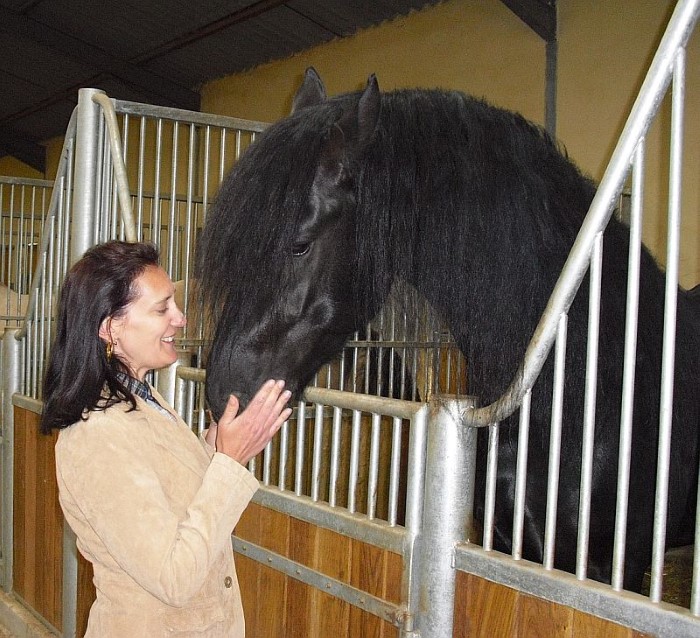
When did you start to think about making a change?
As I was nearing my forties, because of my eye problems, it was becoming clear that I would not be able to work as a doctor for that much longer. In all honesty, this was far from the tragedy it could have been, as I was starting to feel more and more frustrated with the limitations of my profession. I spent most days treating diseases caused or worsened by stress. I felt more and more that I should be focusing on the prevention of these diseases, rather than try and pick up the pieces after prolonged stress had permanently damaged my patients’ physical and mental health.
I started looking at alternative options, ways to prevent stress damaging my patients’ health, without medication. I studied hypnosis and hypnotherapy and qualified as a medical hypnotherapist at Birkbeck College in London. I spent several years exploring alternative options, including Neuro-Linguistic Programming (I am a certified NLP practitioner).
When I was 42, the real breakthrough came. It all started with a book I read: The Tao of Equus: A Woman’s Journey of Healing and Transformation through the Way of the Horse by Linda Kohanov. In this book, I discovered a completely new and extremely promising stress management strategy called equine-assisted psychotherapy.
You see, I had never forgotten that encounter in the meadow. I always yearned for a black horse of my own, but working full time as a doctor, I just never had the time to make this happen.
Equine-assisted psychotherapy offered me the possibility of owning my horse, while at the same time presenting me with an effective method of helping my patients dramatically reduce their stress levels. This realization convinced me that it was time to take the plunge and change careers.
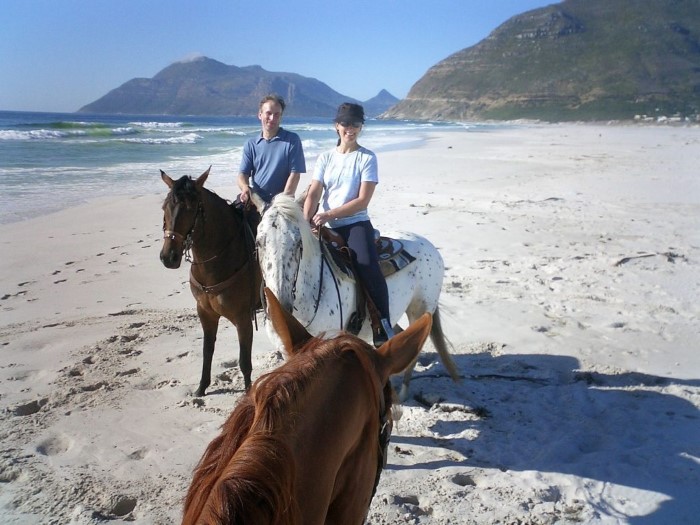
Riding with my husband
What is your next act?
 I host transformational retreats for women, called “Radical Midlife Renaissance Retreats,” lasting 3, 5, or 7 days, sometimes longer, depending on client preferences. These retreats aim to provide women with the skills and tools they will need to make radical changes in the second part of their lives, should they desire to do so, while empowering them to cope expertly with the stress involved in making such huge changes.
I host transformational retreats for women, called “Radical Midlife Renaissance Retreats,” lasting 3, 5, or 7 days, sometimes longer, depending on client preferences. These retreats aim to provide women with the skills and tools they will need to make radical changes in the second part of their lives, should they desire to do so, while empowering them to cope expertly with the stress involved in making such huge changes.
During the retreats, our guests are introduced to stress-management strategies, including mindfulness and various forms of meditation. We introduce our guests to walking meditation (with the horses), writing meditation (about the horses), working meditation (grooming the horses), coloring meditation (horse pictures, what else?), and several other meditation techniques. The idea is that they choose a way to meditate that they can seamlessly incorporate into their daily lives, once they return home.
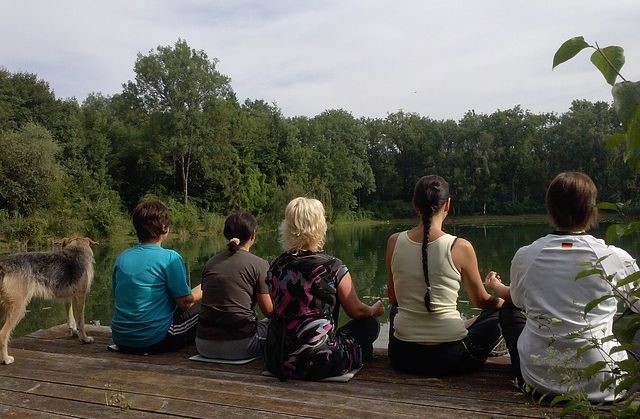
To help our guests change their lives, we use equine-assisted experiential learning. This helps to:
- dramatically increase their self-confidence and assertiveness
- communicate more efficiently and with more assurance
- appreciate their unique attractiveness, just as they are now
- strengthen and deepen relationships, especially with their significant others
- establish new, more worthwhile, and rewarding relationships
- eradicate limiting beliefs that keep them from fully enjoying life
- cope with typical midlife challenges: an empty nest, a stagnant relationship, aging parents, a painful separation, a nasty divorce, insecurity about dating, a redundancy, a career change (wanted or unwanted), hormonal changes, and new physical limitations
- get rid of unhealthy habits and limiting beliefs and discover how full of opportunities and possibilities midlife can be
- develop more successful problem-solving skills
- deal effectively with stress, thus avoiding potential damage to their mental and physical health
These are all skills that are essential to women planning to make major changes in their lives.
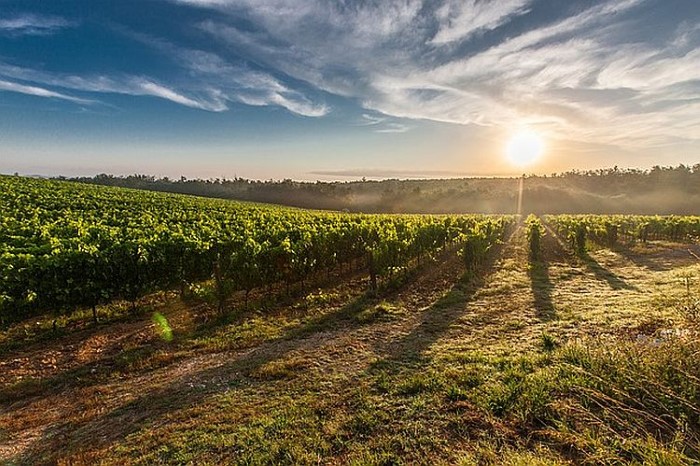
Even our location of Les Sources Sacrées lends itself to inspiring retreats for midlife women. Here in France, women continue to be respected and revered for their beauty, talent, and continuing contribution to society well into their 50s, 60s, 70s and even 80s (think Catherine Deneuve, Isabelle Adjani, Brigitte Bardot). And here in Gascony, people live longer than in any other part of France, longer even than in most other parts of Europe, while retaining their mental and physical health. According to Professor Roger Corder, this longevity is due to the anti-aging effects of Madiran, a feisty red wine made from the grapes grown in the local vineyards.
Personally, I am not convinced that is the only reason. I think it is equally due to the love of good food, good wine, and good company of the inhabitants of our region. At midlife, most people often become acutely aware of the need to maintain their mental and physical health, so we expose our guests as much as possible to this way of living. The retreat includes a tutored wine tasting tour to some of the most famous Madiran vineyards (my husband’s first act was about buying and selling wine and he has a diploma from the Wine and Spirit Education Trust) and visiting a typical French fresh fruit and vegetable market.
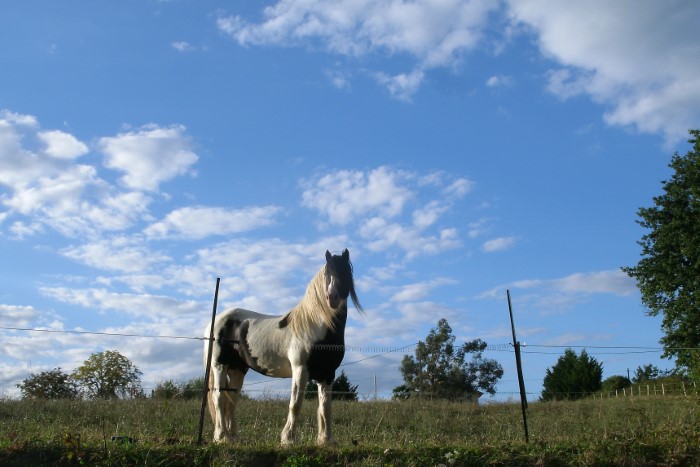
Who are your clients?
My clients come from all over the world: We have had Americans, Canadians, Australians, South- Africans, Russians, Chinese, and of course people from various European countries. Most are 30 years and older; my oldest client was 77 years old at the time of the retreat. The retreats are conducted in English, as this is the language most of our clients have in common, but I also speak French, Dutch, and a fair amount of German, which is helpful to make clients from those countries feel at home.
Most of my clients come here with one thing in mind and that is to get away from the stress of their everyday lives. They want to spend a week or so in the south of France, somewhere beautiful but also safe and secluded, where they can take time to re-think their lives. Most are also keen to find a way to handle stress more effectively and as this is where the horses come in, the clients are happy to work with them. Most of my clients are not seriously into horses; they may always have admired horses from afar but never had time to pursue that interest. Others are downright scared of horses and come on retreat to overcome their fears, including their fear of horses.

What do you love about hosting these retreats?
It is difficult to know where to start. Obviously, I love working with the horses and I love working in such beautiful surroundings, but it is the little things that mean the most to me:
I love seeing midlife women lift their heads, stand tall, and look people straight in the eye, no longer invisible or insecure.
I love meeting so many exceptional women and being able to contribute even in the smallest way to the success of their new ventures.
I love the easy camaraderie during the retreats and the way women instinctively support each other and often forge long-term friendships while on retreat.
I love it when the faces of midlife women light up with the realization that they are as attractive and appreciated as they have always been.
I love seeing hitherto quiet and insecure women handle humongous horses with ease and assurance.
I love receiving e-mails, months and even years after the retreats, keeping me up to date with these women’s continuing progress.
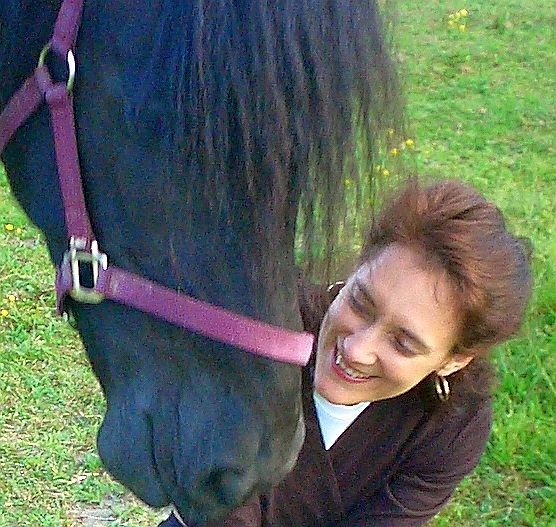
How did you make your dream a reality?
To make my next act a reality, I had to make a lot of changes. In 2007, I resigned from my comfortable position as a general practitioner and started studying equine-assisted psychotherapy and experiential learning through EAGALA (Equine-assisted Growth and Learning Association). I went from a substantial monthly income to no income. It was also clear that my marriage of nearly 20 years was over, so I filed for divorce and, when the divorce came through, married my current husband.
I bought my first two horses. I sold my gorgeous farm in the Pays de la Loire, in France, and moved to the United Kingdom with my new husband and my two horses, leaving all my friends and family behind. Only to promptly move back to the south of France nine months and one very, very cold and wet winter later—husband, house, horses, and all.
During this time of change, I thought a lot about my next act. I still wanted to work with women, mainly, and I was still obsessed with the prevention of stress-induced and stress-related diseases, one way or another.
I had a good look at my strengths: my education and extensive experience (by then I had been in medical practice for nearly 20 years), especially in Psychiatry. I had a good look at my weaknesses and limitations, especially my inability to work with the same intensity as I did when I was still a doctor, in order to slow down the deterioration of my sight. I looked around me to see what I could work with and found one hugely supportive husband, one magnificent Friesian mare, a drop-dead gorgeous Spanish stallion, and an overwhelming conviction that equine-assisted psychotherapy could be the most powerful agent for change in people’s lives that I have ever encountered.

We also were very fortunate to have enough money to put down a deposit on a property that would house us and our growing equine family (the above-mentioned mare had managed to get herself pregnant by then) in a part of France we absolutely adored: Gascony, in the foothills of the majestic Pyrénées Mountains, on the border of France and Spain.
My husband and I had long discussions about how we could best use equine-assisted psychotherapy and experiential learning (he also trained with EAGALA, as an equine expert) to help people manage stress. We finally settled on running retreats, not just relaxing, but also transformational retreats—initially mostly with our friends, who were working in London and Paris, in mind. We realized that many of our friends yearn to live a more laid-back, creative, and meaningful life, a life more in alignment with their unique talents, values, and ideals; but no matter how much they desire to change the way they live, they are so stressed and so busy trying to hold everything together that they end up resigning themselves to never being able to be who they really want to be.
We wanted to offer our super-stressed friends somewhere to escape from the challenges and demands of their daily lives, where they could relax and recharge their batteries. More than that, we wanted to equip them with the skills and tools they would need to manage stress effectively once they returned home and so avoid the physical and mental harm prolonged stress could do to their health. We wanted to enable them to live the healthier, happier, more rewarding, and more fulfilling lives that they deserved.

How did you decide where to locate your retreat?
Finding the perfect home for our retreats was the most difficult part of realizing my next act. It took us 11 months to find the ideal property. Negotiating the sale took another four months. Finally, it was ours: an authentic, 300-year-old half-timbered Landaise farmhouse, partially renovated, with 22 acres of lush green meadows for the horses (crucially important). The house is idyllically located among vineyards, woods, orchards, and meadows. The property came with a 2-acre fishing lake, fed by six constant springs and a small stream. We fell hook line and sinker for it the very first day we saw it and had to fight tooth and nail to make it ours.
Why did we want it so badly? Les Sources Sacrées is not only perfect for our family’s needs, but it is also an ancient site of healing, possibly dating as far back as the Roman occupation of France—the six springs feeding the lake are reputed to have healing properties. For centuries, pilgrims on the St Jacques de Compostelle pilgrims’ route would make a detour to Les Sources Sacrées to drink water from its springs and pray in its chapel. The house was also very well suited to our retreat plan: Apart from the original farmhouse, there was also a fully renovated barn, with ample accommodations for our family, friends, and retreat guests, giving our visitors 24/7 access to their own kitchen, with a large open plan sitting/dining area and a delightful little front porch.
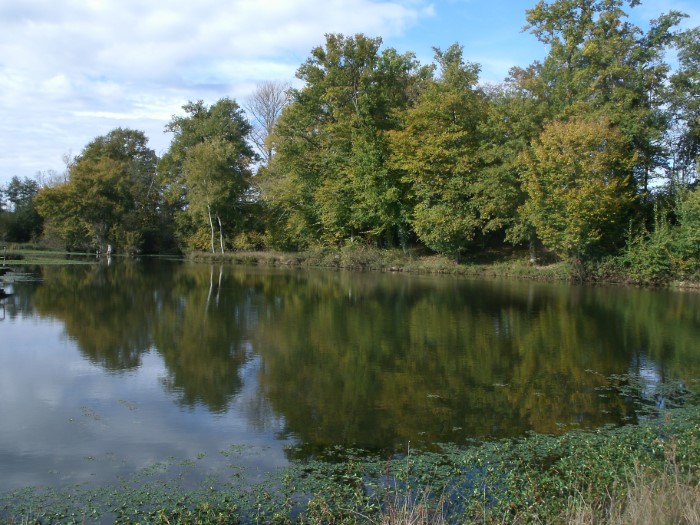
After 15 months of boarding our horses, welcoming them to their new home was one of the happiest moments of my life. Our little herd had grown by then. We still had Belle de la Babinière, my stunningly beautiful Friesian mare, although she now had competition in the beauty stakes from her daughter, Aurore d’Alegria, and from her half-sister, Tess des Sources Sacrées. There was also Le Duc d’Alegria, Aurileo d’Alegria (our little rescue horse), and Baggio van’t Kushti Grai, a drop-dead-gorgeous Gypsy Vanner stallion.
Six months of painstaking renovation later, everything was ready for my next act. The plan was to introduce our guests to mindfulness meditation (I discovered the extensive benefits of mindfulness and meditation during the 15 months of waiting) to help them deal with stress and to equine-assisted experiential learning to help them develop skills that will enable them to cope with stress in the future.

Why did you choose this next act?
I chose hosting transformational retreats as my next act because this enabled me to combine my medical education and experience with my conviction that horses have an innate ability to help people manage stress.
Initially, I considered various options: women’s retreats, couples retreats, mother-daughter retreats, teen retreats, corporate retreats… But I only really felt inspired by the concept of empowering women’s retreats. I had once again a good look around me and found that midlife, with all its challenges and opportunities, had undeniably arrived—for my husband, for myself, and for my soulmare, Belle de la Babinière.
I decided that I wanted to focus on hosting retreats for women in midlife and once I made that decision, everything else fell into place. I created the retreat so effortlessly it felt as if it was creating itself—a retreat that would enable and empower women to cope with—no, not just to cope with, but to thrive on—the challenges and changes of midlife.

How hard was it to take the plunge? How did you prepare?
Taking the plunge was not hard at all. It was clear to me that change would be inevitable and that the best I could do was to be as thoroughly prepared for it as possible. I prepared by doing research (see below).
Coping with the fall-out was a bit more difficult. It took me a long time to get used to not being a doctor anymore. For many, many years, my identity was firmly entwined with my work and with the privileges that came with the job description. It took me a long time to forge a new identity that I was comfortable with. I finally settled on Equine-assisted Experiential Learning Coach. Over time I managed to integrate my medical background into who I am. I now refer, tongue-in-cheek, to myself as a reformed MD.

My husband
How supportive were your family and friends?
Extremely supportive, but as most of my friends and family were far away, for immediate and day-to-day support, I initially depended mostly on my husband and on my horses. Apart from being my number one supporter and springboard, my husband looks after the practical side of things during a retreat. He is responsible for ensuring that everything runs smoothly: that guests are transported to/from the farm, that horses are assembled in time for the EEL sessions, that the meals are ready on time, that house, garden, and lake are in top condition… Sometimes I think he works harder than I do! He is also the tour guide for the tutored wine tasting tours.
We soon made friends. The Gascon people are easygoing and welcoming. They certainly love their food (Gascony is famous for its gastronomy) and we spend many Sunday lunches happily getting to know the neighbors, after attending Mass in the village church. Also, people with horses tend to integrate into a farming community very quickly, and having the three Friesian mares on the yard made us popular with young and old in no time.
I also received masses of support online, especially when I started blogging, but even before that, from members of the various Facebook groups, I belong to.
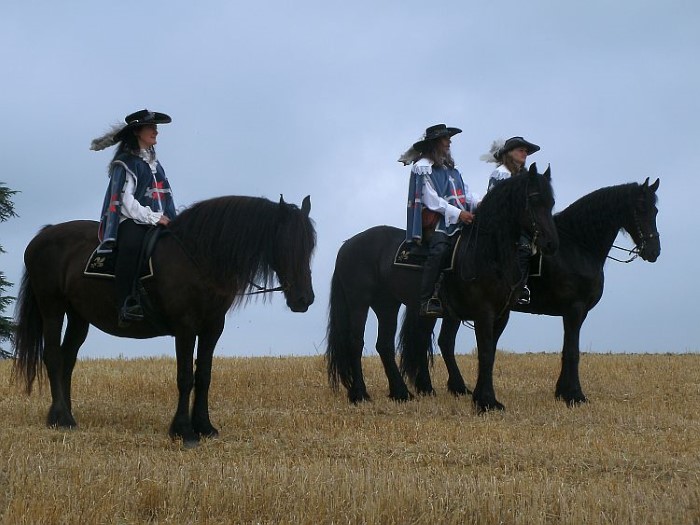
Participating in community activities
What challenges did you encounter?
My biggest challenge was marketing the retreats. Marketing is not a course taught at medical school; on the contrary, any form of self-promotion is frowned upon. One can even lose one’s license to practice medicine should one venture down this path. I had no marketing experience whatsoever. I had a product to sell, but I did not know how to sell it.
I started by advertising our retreats online, on the various retreat-promoting websites. This was a complete waste of time and money. I learned, the hard way, that marketing in the 21 century is all about creating relationships.

My “office”
Luckily, the whole concept of getting to know people before inviting them to our retreats appealed to me. I find it much easier to talk to people I know about what I do than to talk about it to total strangers. Admittedly, I am so passionate about helping women not only survive but thrive, during midlife and about inspiring them to look after themselves physically and mentally as they get older, that I would easily stop strangers on a street corner to talk about it. Inviting those people to come on retreat to Les Sources Sacrées, well, that is not something I could ever bring myself to do. What I can do is talk to people online about making the most of midlife—and if they are interested in retreats, refer them to my website.
Putting myself into my clients’ shoes also helped a lot. I realized and learned from personal experience that going on a retreat is an expensive business. Not only does one have to pay for the retreat itself, but there are also travel and insurance costs to cover. Personally, I would not be willing to fork out that much money to go on a retreat with someone I had never met and knew nothing about. The more information potential guests have at their disposal, and the better they know the retreat leader, the more likely they are going to feel comfortable about paying for the retreat.
![CIMG2828[2]](https://helenetstelian.com/wp-content/uploads/2016/05/CIMG28282-1024x768.jpg)
Working with a client
Were there times when you thought about giving up?
Of course. Starting a new business, with practically no idea of what running a business is about, nor about how to market it, was no easy undertaking. I made mistakes. I often felt like giving up. Especially when yet another thing went wrong with my eyes. What gets me through these dark times is my Christian faith and the support of my husband, my horses, my family, and my friends (on- and off-line).
What advice do you have for women seeking reinvention in midlife?
Ask yourself this one question: “Do I want to live like this for the rest of my life, the next thirty, forty, or fifty years?” If the answer is no, then it is time for a change. Don’t overthink it. Just do it.
But make sure you are fully prepared before you take the first step. I prepared by reading motivating and inspiring books and blogs – like Next Act for Women!
Books I recommend:
Awaken the Giant Within : How to Take Immediate Control of Your Mental, Emotional, Physical and Financial Destiny! and Unleash the Power Within: Personal Coaching from Anthony Robbins That Will Transform Your Life!
by Tony Robbins. You can read my all-time favorite Tony Robbins quotes HERE.
A Course In Miracles by Marianne Williamson
The Purpose Driven Life: What on Earth Am I Here For? by Rick Warren
The Gifts of Imperfection: Let Go of Who You Think You’re Supposed to Be and Embrace Who You Are by Brené Brown
Feel the Fear . . . and Do It Anyway by Susan Jeffers
Simple Abundance: A Daybook of Comfort and Joy by Sarah Ban Breathnach
Finding Your Own North Star: Claiming the Life You Were Meant to Live and Steering by Starlight: The Science and Magic of Finding Your Destiny
by Martha Beck
Self-Compassion: The Proven Power of Being Kind to Yourself by Kristin Neff

I suggest that you surround yourself with unconditional supporters. You may come across a fair amount of opposition and, the more outrageous the change you intend to make, the stronger the opposition is going to be. Especially from your close friends and family. That’s OK, they are only trying to protect you from getting hurt. Go online and join groups of like-minded women. Talk to them. Listen to them. Learn from them. Or start a blog. Personally, it is from the people who read my blog that I get the most support and the best advice.
Practice mindfulness and meditation to preserve your sanity. The traditional form of sitting meditation does not suit me, I prefer to meditate while I am grooming the horses. I usually end my meditation by making a list of the things that I am grateful for.
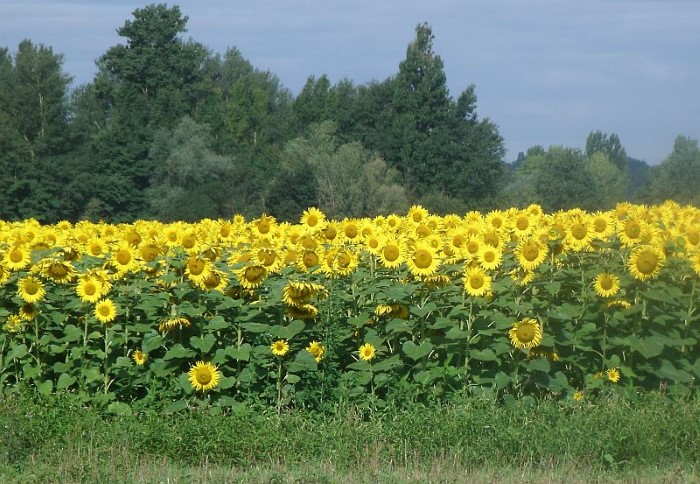
What advice do you have for those interested in hosting transformational retreats?
This is a very competitive field. I would advise those interested in hosting retreats to choose a specific segment of the market, as I chose to host retreats for midlife women. Then create a retreat that will solve a specific problem in your target market, as I chose to empower midlife women who want to start over at midlife. The retreat should have a specific theme: Mine is to encourage our guests to make changes that will ensure the rest of their lives are long, healthy, and as stress-less as possible. The location and activities should complement the theme; our retreat is located in a region where people live long, healthy, and low-stress lives, and we show our guests how they can live similar lives through our activities. A unique selling point is also rather important, to have something that no, or few other, retreats offer; in our case, it is the opportunity we offer our guests to change themselves and their lives with the help of our horses.
Marketing a retreat correctly is also essential. I would suggest potential retreat hosts focus on creating relationships on- and off-line and on creating an e-mail list, rather than advertising their retreats directly. It can also be beneficial to work with someone who does have a list and who would be willing to promote your retreats to their list—in return for a free retreat, for example.
Finally, outrageous service, always providing more than guests expect, right from the very first contact, is the way to distinguish your retreat.
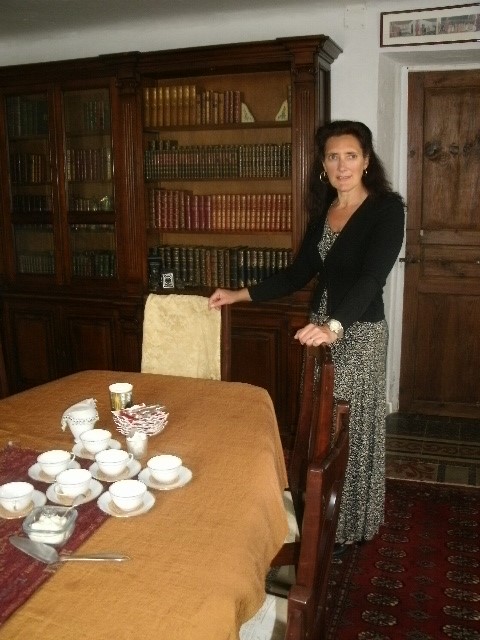
Waiting to welcome my guests
What other resources do you recommend?
Equine-assisted Experiential Learning
Anyone interested in equine-assisted psychotherapy and experiential learning should visit the EAGALA website and if you are interested in a qualification in this fast-growing field, I highly recommend their training program. Their Level I and II certificates for mental health workers and horse experts alike are respected globally.
As this is an emerging field, I suggest you also join one or more Facebook groups where therapists discuss the problems they encounter. I am a member of the group Equine Assisted & Facilitated Practitioners Network hosted by Claire Misson.
I also recommend that you keep abreast of newly published research and articles by liking a Facebook page or two where this sort of research is regularly published. I do so on my own page Meditation Workshops with Horses and I read the Windhorse Wisdom Equine Facilitated Learning & Coaching page to keep up to date.
There are several books to read on the subject now, but my favorite remains Horse Sense and the Human Heart: What Horses Can Teach Us About Trust, Bonding, Creativity and Spirituality by Adele McCormick.
Transformational Retreats
If you are interested in running retreats, I would recommend my friend Stafford Whiteaker’s book The Good Retreat Guide: Over 500 Places to Find Peace and Spiritual Renewal in Britain, Ireland, France, Spain, Italy, Greece, Other European Countries, Asia and Africa. He is a world-renowned authority on retreats and personally visited our retreat to suggest improvements.
Also useful is Sheri Rosenthal’s The Retreat Blueprint Training Program. The program is a bit expensive, but you can learn a lot from the free introductory webinar.
The Facebook group Wellness Retreat Owners hosted by Nicola Williams Smith is also very useful.
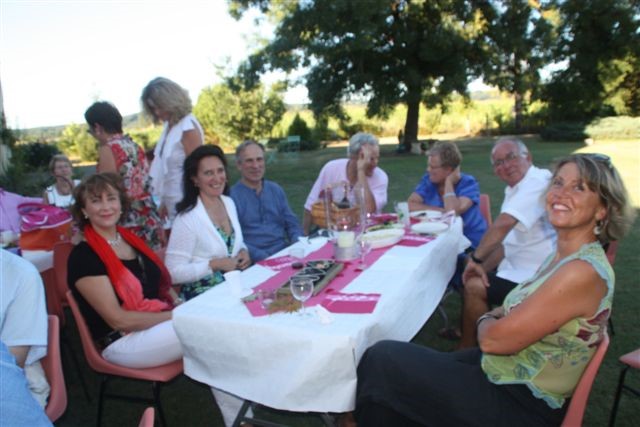
What’s next for you?
I have decided to host Mindful Eating for Weight Loss Retreats again this year. I last did this in 2013 and it was very popular. It seems like it is going to be again – within 1 hour of putting the page up this weekend I had more than 2500 views and several inquiries!
I am currently working on a follow-up program for our retreat guests. All the information we provide during the retreat remains available to our retreat guests on our website after the retreats—we have at least 60 informative web pages online now—but several guests have asked if we could provide some sort of support immediately after the retreat, to help them implement what they have learned and remain on track. My idea is to offer a 3/6/12 month coaching program. Guests are always welcome to join us for repeat retreats and many do, but online coaching will provide support for those who need it immediately after and between retreats.
Paying it forward is also a very important concept to me. I am convinced that we are no more than the guardians, the temporary caretakers, of this 300+-year-old house, the land surrounding it, the lake, and the springs, and that we have a sacred responsibility to ensure its intact survival for the generations to come. With this in mind, we are serious about sustainable tourism. Also, we value the support of our community very highly and we invest in our community by using equine-assisted experiential learning to help eradicate bullying in local schools and to provide nursing home residents here with physical as well as mental stimulation. We also support various horse rescue charities and we intermittently foster abused horses. We rescued Aurileo d’Alegria from slaughter, literally on his way to the abattoir.
My next substantial project will be to take the show on the road. I have already presented workshops in various other countries, but I have never taken our retreat in its current shape and form to another location. I have a good friend in the United Kingdom, who has the facilities and the horses that would make this possible. I am planning a retreat there in the fall of this year and, if that goes well, I would like to travel even further afield.
Contact Margaretha Montagu at MargarethaMontagu@gmail.com
Facebook Pages:
Meditation Workshops with Horses
Twitter: @EquineGuidedMD
Pinterest: Margaretha’s Muse
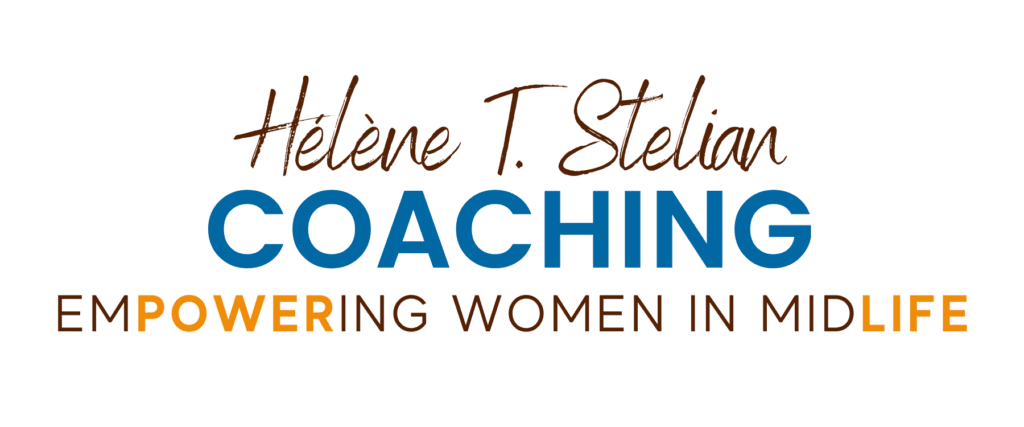
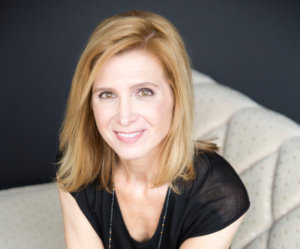
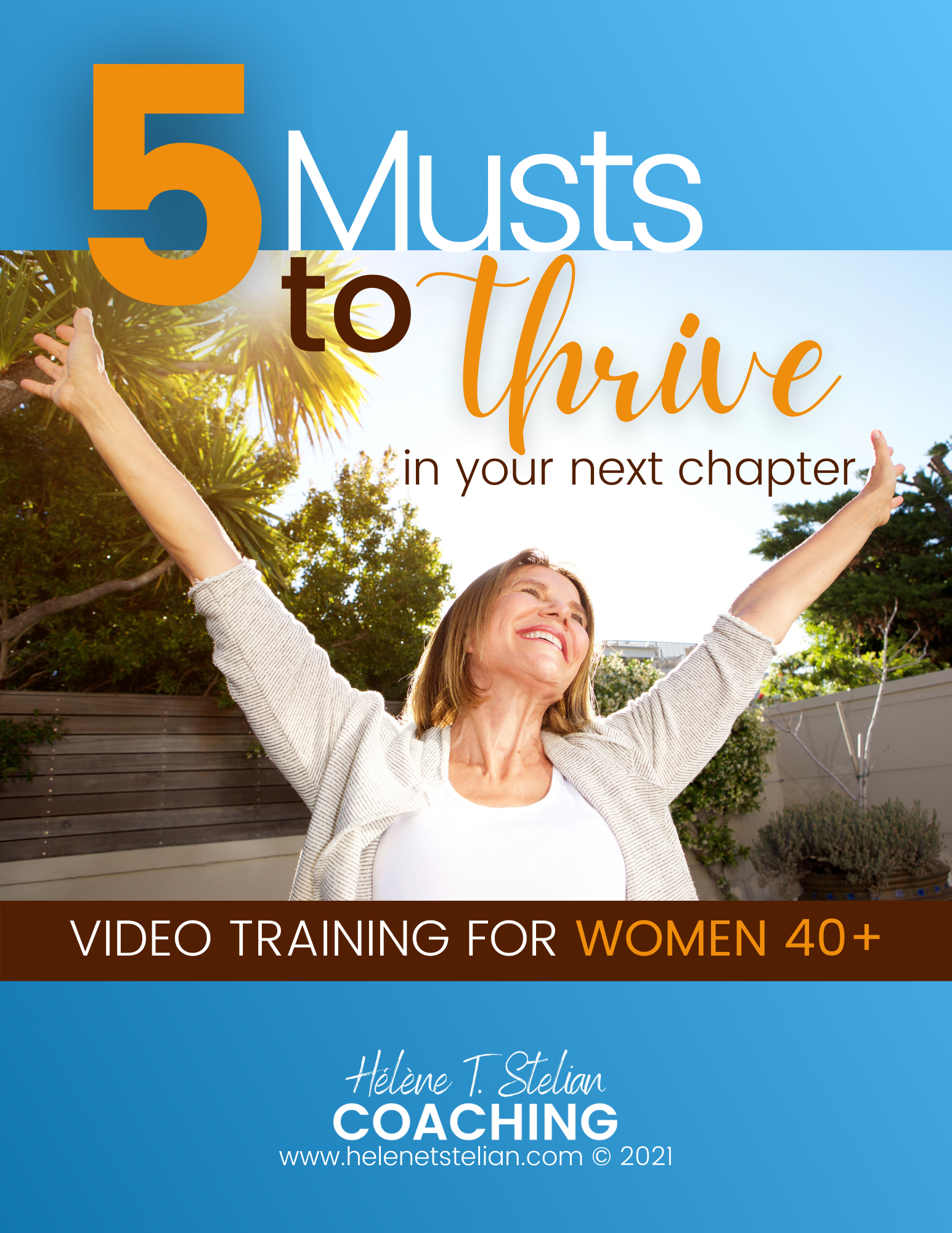



I have always been a horse lover and would love to own a couple. Unfortunately my husband is absolutely terrified of horses due to a childhood accident. Very good read.
Send him to me! (or take him to an equine-assisted experiential learning therapist near you). Equine-assisted experiential learning works best with people who are scared witless of horses. More about EEL here: https://equineguidedgrowth.com/methods-of-meditation/how-it-works/equine-assisted-personal-development/
I like your advice for women seeking reinvention in midlife. Also, I think taking the show on the road is a great idea!
Thank you, Lori! It is a bit of a daunting prospect and I have been somewhat at a loss on how to make it all happen…when one of my friends, having read this post, made a few very useful suggestions.
that was so interesting Margaretha – I had no idea about who you were or why you do what you do and it was fascinating reading your journey and what a difference you are making in people’s lives (with the help of those horses!) One day if I ever come into a mystery inheritance I’ll pop over to France and chill out on a lounge chair and discuss books with you (I just finished the Brene Brown one you mention!) x
I am usually quite a private person, Leanne, and rarely tell this story, even to people I have know for a while, like you. It is a difficult story to tell. Without my faith, I would long since have given up. I would love to meet you in person one day, either here or in Australia, who know? stranger things have happened.